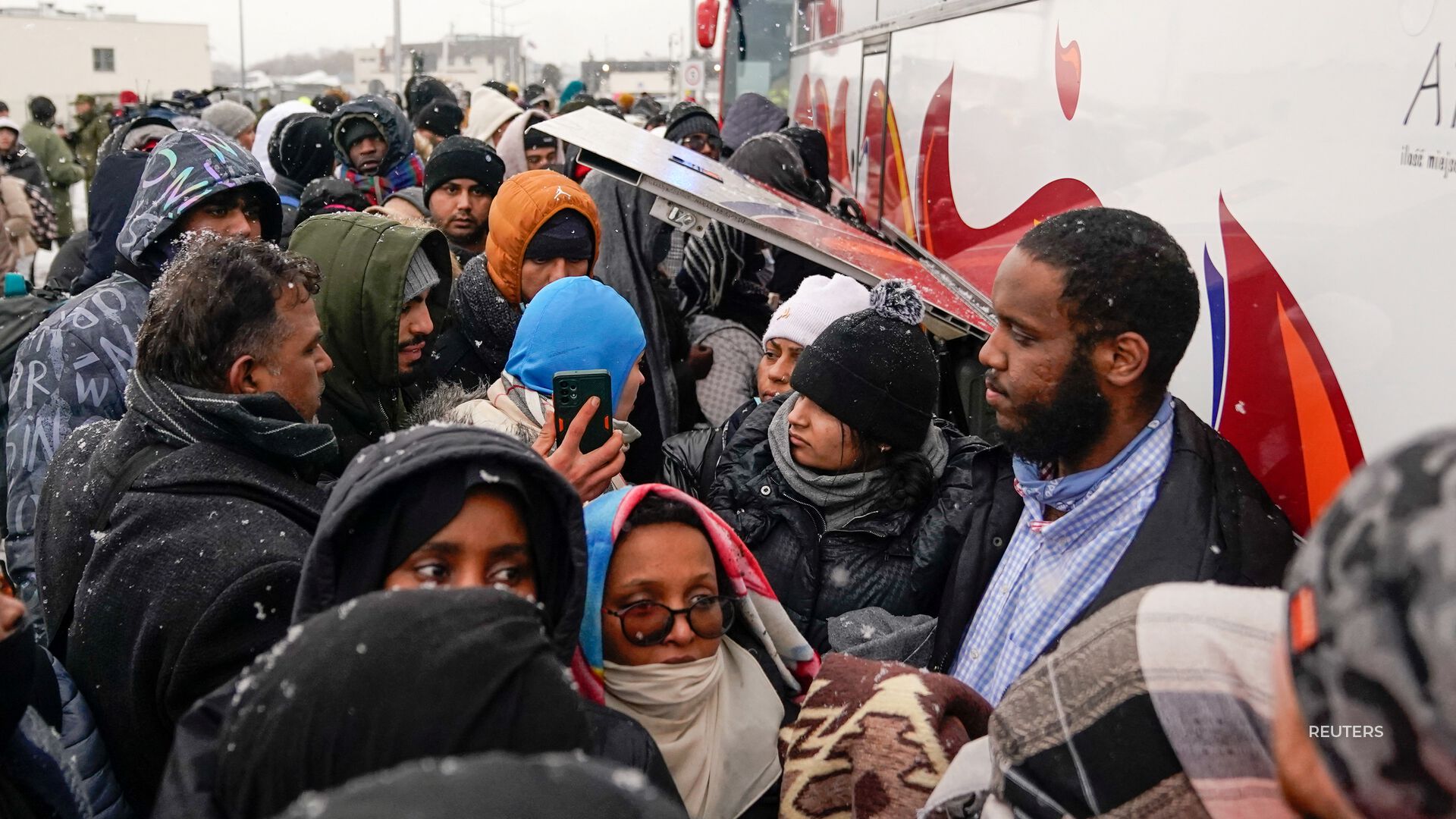
Priscillia Vawa Zira // Medical Student Studying in Ukraine: “The situation was very terrible. You had to run because explosions here and there every minute, run to the bunker, and all of that. And to get a train to leave Lviv was horrible. I stayed for over 20 hours.”
Gwen Baumgardner: HER STORY — ONE OF THE HUNDREDS OF THOUSANDS THAT PEOPLE ARE LIVING RIGHT NOW AS women and children evacuate UKRAINE AMID RUSSIA’S INVASION.
AS OF MONDAY MORNING — THE U-N ESTIMATES MORE THAN HALF A MILLION PEOPLE HAVE ALREADY FLED.
MILES OF CARS AND BUSES WERE BACKED UP AT BORDER CHECKPOINTS.
SOME UKRAINIANS OPTING TO CROSS THE BORDER ON FOOT…INTO PLACES LIKE POLAND, SLOVAKIA, AND HUNGARY.
OVER THE WEEKEND — THE EUROPEAN UNION PREDICTED AS MANY AS 7 MILLION UKRAINIANS MAY END UP BEING DISPLACED.
Janez Lenarcic // European Commissioner for Crisis Management: “We are witnessing what could become the largest humanitarian crisis on our European continent in many, many years. The needs, the humanitarian needs are growing as we speak.”
Gwen Baumgardner: THE E-U’S TOP MIGRATION OFFICIAL HAS CALLED FOR ALL POSSIBLE PROTECTIONS FOR THESE REFUGEES – PROVIDING THEM WITH A PLACE TO LIVE, AS WELL AS THE POSSIBILITY OF JOBS — MEDICAL TREATMENT — AND EDUCATION FOR CHILDREN.









